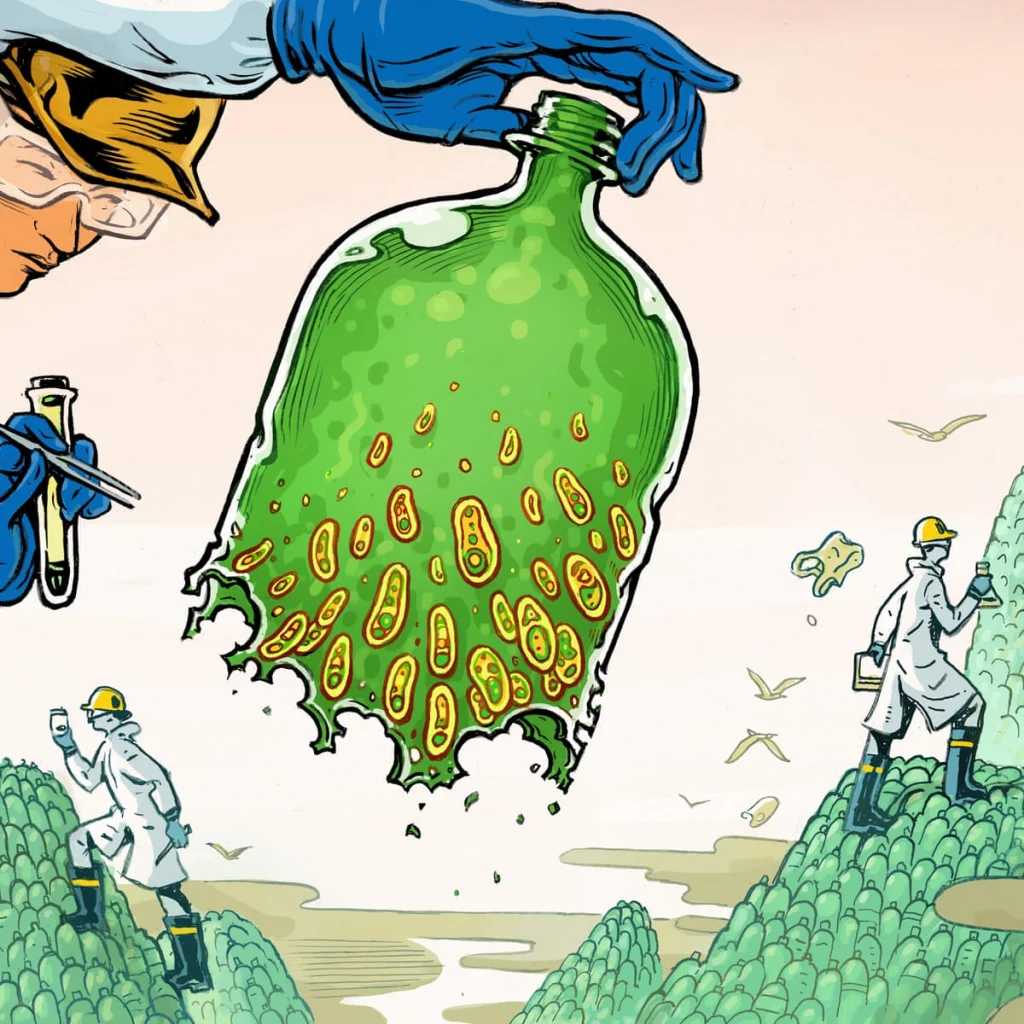According to a recent study, climate change is making it possible for harmful Aspergillus fungi to proliferate into new regions. Serious health risks are raised by this, particularly for those with weakened immune systems.
Concerns over the growing risk of fungal infections as a result of climate change have been raised by a recent study conducted by experts at the University of Manchester.
According to the study, harmful mushrooms, especially Aspergillus species, are spreading into new geographic areas with the aid of rising global temperatures, potentially endangering millions more people.

RISING FUNGAL INFECTIONS
According to the researchers, fungus infections have historically received little attention in public health discourse.
The recently published paper, which has not yet undergone peer review, emphasized their increasing importance. If present warming trends continue, Aspergillus fumigatus, a common mold that may cause serious respiratory illnesses, is expected to increase its distribution in Europe by up to 77% by the year 2100.
Nine million more people could be at risk of infection as a result of this expansion.
Similarly, Aspergillus flavus, which produces toxic aflatoxins that damage crops, may spread 16% more widely, endangering one million more people in Europe alone.
People with compromised immune systems, such as those receiving chemotherapy, organ transplant recipients, or those suffering from long-term respiratory disorders, are particularly vulnerable to these fungi.
Serious infections can result in diseases like aspergillosis, which can be lethal if not identified and treated right away.

CHANGE IN THE CLIMATE AS A CATALYST
The study emphasizes that one of the main causes of these fungal infections is climate change.
Fungi can now flourish in areas that were previously inappropriate for their survival due to warming temperatures and shifting environmental factors.
Due to its effects on agriculture, this change not only raises the possibility of human diseases but also jeopardizes the world’s food supply.

DIAGNOSIS AND TREATMENT DIFFICULTIES
The lack of efficient antifungal medications and testing equipment is one of the urgent issues the researchers brought to light.
Early detection of many fungal diseases is challenging, and growing resistance to current antifungal drugs frequently reduces their effectiveness.
Aspergillus flavus’s resistance to treatment has led the World Health Organization to recognize it as a serious public health concern.
“The fungus Candida auris has already emerged as a result of warming temperatures, but up until now, little was known about how other fungi would react to this environmental shift. Compared to viruses and parasites, fungi have received less attention, yet these maps indicate that fungal infections will probably affect most parts of the world in the future. To lessen the effects of this, it will be crucial to increase knowledge and create efficient treatments for fungal infections, according to Dr. Norman van Rhijn.

A common fungus that grows on soil and disperses microscopic spores via the atmosphere is Aspergillus. We inhale these spores on a daily basis, and for the majority of healthy individuals, they are harmless because the immune system eliminates them.
However, these spores can be harmful to persons with weakened immune systems, such as cancer patients, transplant recipients, or those recuperating from severe flu or COVID, or to those with lung conditions like asthma or cystic fibrosis.
“The fungus grows inside the body and, to put it bluntly, it can start eating you from the inside out when the immune system is unable to fight it off.”
Read More: Tata Altroz Facelift: Launch, Booking Date & Key Details

| Join Our Group For All Information And Update, Also Follow me For Latest Information | |
| Facebook Page | Click Here |
| Click Here | |
| Click Here | |



